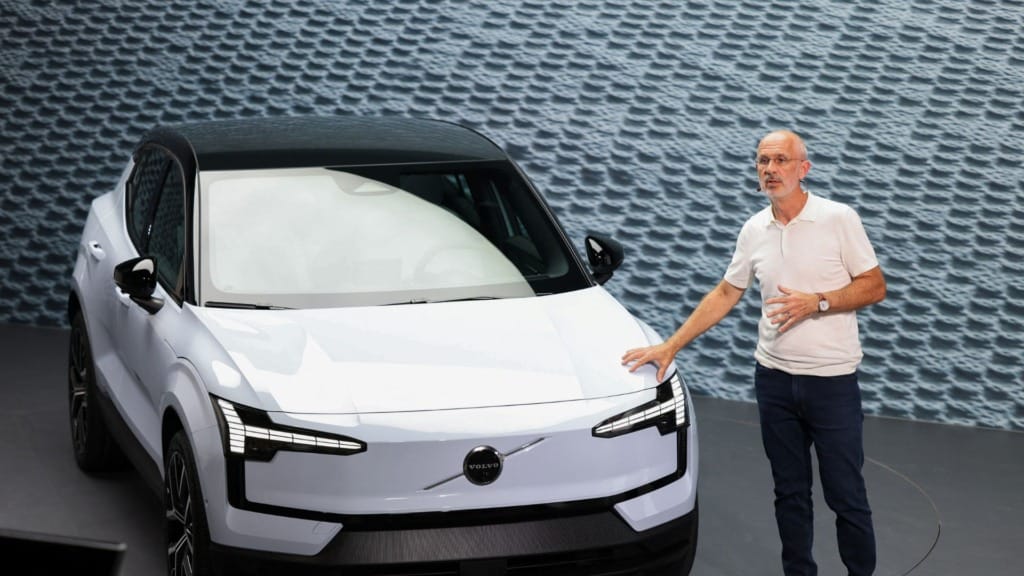Volvo adjusts EV-only strategy as market demand lags
Volvo delays all-electric vehicle plans to 2030 as market demand slows and tariffs on Chinese-made EVs affect the rollout of its compact EX30.

Earlier in September, Volvo made headlines by announcing a delay in its plans to transition to an all-electric vehicle lineup. The move, according to the company’s head of global sustainability, Vanessa Butani, reflects a response to the slower-than-expected market demand for electric vehicles (EVs).
Table Of Content
“We have reduced our ambitions to go fully electric by 2030,” Butani stated during an interview. “While we are completely prepared to make the switch, the market is not moving at the same pace, so we are adjusting our targets accordingly.”
Volvo initially set an aggressive deadline to sell only electric vehicles by 2030, one of the earliest targets among major automakers. Former CEO Håkan Samuelsson confidently declared that Volvo would stop investing in combustion engine vehicles, choosing instead to focus on electric and online sales as the future of the brand. But now, that goal is being reconsidered as demand falls short of expectations.
Hybrid models remain crucial for now
Volvo has now shifted to a more flexible approach, aiming to sell 90 to 100 per cent electrified vehicles — a mix of hybrid and battery-electric models — by 2030. The company also reaffirmed its broader commitment to carbon neutrality, setting a target to reach this milestone across all operations, including manufacturing and supply chains, by 2040.

Butani emphasised that the adjustment is a necessary response to the current market conditions, noting that customer interest in EVs has slowed down over the past few months. Recent data supports this shift: according to a JD Power report, only 22 per cent of new car buyers in the past month said they were “very likely” to purchase an electric vehicle, down by 4.2 per cent from last year.
“We are fully committed to going electric because it’s the right path forward,” Butani explained. “But to make it happen, we need a joint effort, both within and beyond the automotive industry.”
The EV market has faced hurdles that extend beyond customer hesitancy. Butani pointed to government policies as another barrier to rapid adoption. “Governments are pulling back on incentives, and infrastructure isn’t expanding quickly enough,” she said, highlighting the importance of public and private sector collaboration.
Challenges from tariffs and supply chain issues
Butani also cited complications caused by changes in US trade policies. In particular, the Inflation Reduction Act of 2022 has impacted Volvo’s ability to offer electric vehicles at competitive prices. This legislation introduced stricter criteria for eligibility for the federal EV tax credit, which Volvo lost due to its foreign manufacturing base. To receive the credit, electric vehicles and batteries now must be produced in the US.

Volvo’s reliance on China for vehicle production — the automaker is owned by Chinese company Geely — presents another obstacle. Volvo had planned to launch its compact EX30 SUV in the US this year at a starting price of US$35,000, a model that has already proven popular in Europe. However, the Biden administration’s decision to increase tariffs on Chinese-made EVs to 100 per cent has delayed those plans.
Production of the EX30 was initially set for China’s Zhangjiakou factory, but Volvo is now working to shift manufacturing to Europe to meet US demand. As a result, the vehicle is unlikely to reach the American market before late 2025.
Butani acknowledged the challenge this presents. “Tariffs have a significant impact,” she said. “They complicate things, but they also remind us of the importance of producing vehicles closer to the markets where they are sold.”
Still on track, with minor adjustments
Despite these obstacles, Volvo remains one of the leaders in sustainability, according to Butani. She pointed out that the company’s revised strategy only means a slight change to its original emissions reduction targets. Volvo initially aimed to cut per-car emissions by 40 per cent by 2025, but this has been adjusted to 30-35 per cent. Similarly, the 2030 target has shifted from a 75 per cent reduction to 65 per cent.
Butani downplayed the significance of the adjustments. “It’s a small change,” she said. “We are still committed to the same overall goals, just with a slight recalibration to reflect the realities we’re facing.”
Volvo’s EV journey may have encountered a few bumps, but the company remains focused on a greener future, adapting to the current challenges while staying on course.
















